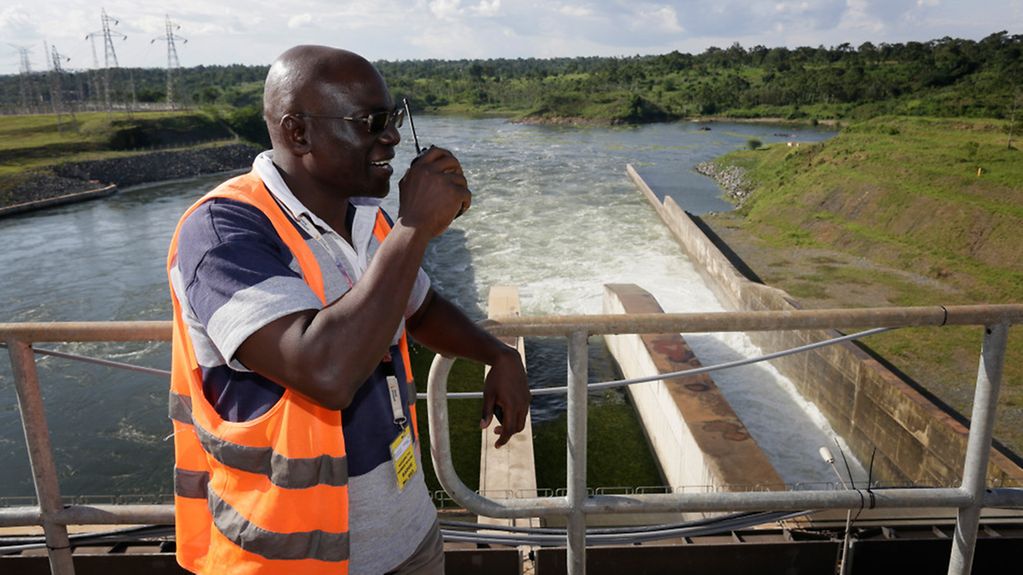UN Decade
The United Nations have declared the coming decade, from 2014 to 2024, the Decade of Sustainable Energy for All. About 1.4 billion people, 20 per cent of the world’s population, still have no access to electricity. The vision of sustainable energy for all can only become reality if we all pull together.
3 min reading time

Sustainable, environmentally-friendly power
Photo: Thomas Koehler/photothek.net
We need energy to grow and prepare food, to heat homes and schools, to operate hospitals and to provide safe drinking water. Companies need energy to produce goods and create jobs. Energy gives us worldwide communications and mobility. Without energy, there can be no development.
The 193 member states of the United Nations (UN) thus decided unanimously in 2013 in New York to make the decade from 2014 to 2024 the Decade of Sustainable Energy for All. The aim is to give almost all people around the globe access to a power supply. If we are also to stop climate change, however, power must be generated in a sustainable and environmentally-friendly way.
Main targets to be achieved by 2030
Access to electricity and modern forms of power for all people around the globe
Sustainable development is impossible without sustainable energy. Energy underpins social and economic development and provides opportunities for a better life and economic progress. This makes universal access to modern energy absolutely essential, so as to achieve the Millennium Development Goals, said UN Secretary-General Ban Ki-moon.
Doubling energy efficiency
This means saving energy and resources. The advantages include lower costs and less environmental damage, which will benefit all people.
Doubling the percentage of the global energy mix generated from renewables
Energy generated from renewable sources cuts greenhouse gas emissions, reduces local air pollution and thus mitigates climate change. Dependence on imports of fuels such as oil or coal is scaled back.
Commitment of member states
The vision of sustainable energy for all can only be achieved together, with the help of global and national actors. The aim must be to get all people to foster the use of renewables and to make economical use of energy and other resources.
The United Nations aim to create what they term High Impact Opportunities (HIOs) to this end. These are platforms which enable organisations with similar goals to work together. About 50 High Impact Opportunities have been identified so far, including:
Energy efficiency
- Energy efficiency in buildings and appliances
- Energy
- Women's health
- Finance
- Modern household appliances
- Fuels
- Sustainable biofuels
- Sustainable energy for island states
- Fuel efficiency.
More than 80 governments of developing countries have already signed up for the Initiative, and aim to foster the use of sustainable energy.
Activities of the German government
Back in 2011 the UN launched its Sustainable Energy for All Initiative. With its development policy the German government is supporting this goal. It is working in particular to achieve a global shift away from fossil fuels to greater use of renewables, paired with efforts to achieve greater energy efficiency.
One of the priority areas of German development cooperation is energy. The German government cooperates with more than 50 partner countries. Energy is the single largest field of promotion. The German Federal Development Ministry aims to help partner countries give another 100 million people access to electricity by 2030. To this end, aid in the energy sector is to be doubled to a total of 3.6 billion euros a year.
Support welcome
Not only governments are called on to support the Initiative. Everybody can get involved in the Sustainable Energy for All Initiative.
On its website the Initiative has a contact form, which organisations can use to offer support. A US bank, for instance, has pledged to invest a sum of 50 billion US dollars within ten years in fields including energy efficiency, renewable energies and energy infrastructure.